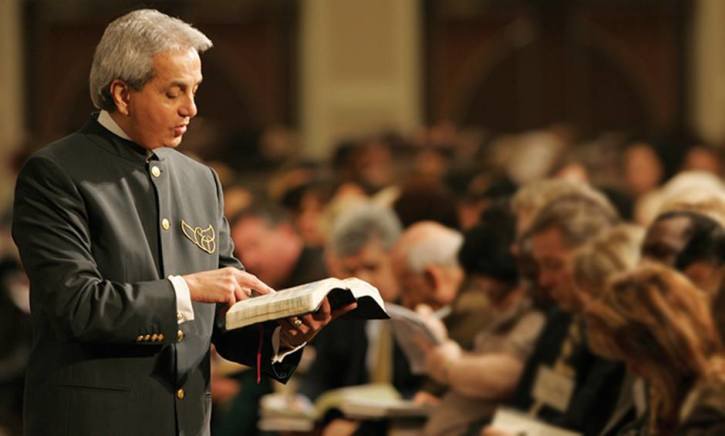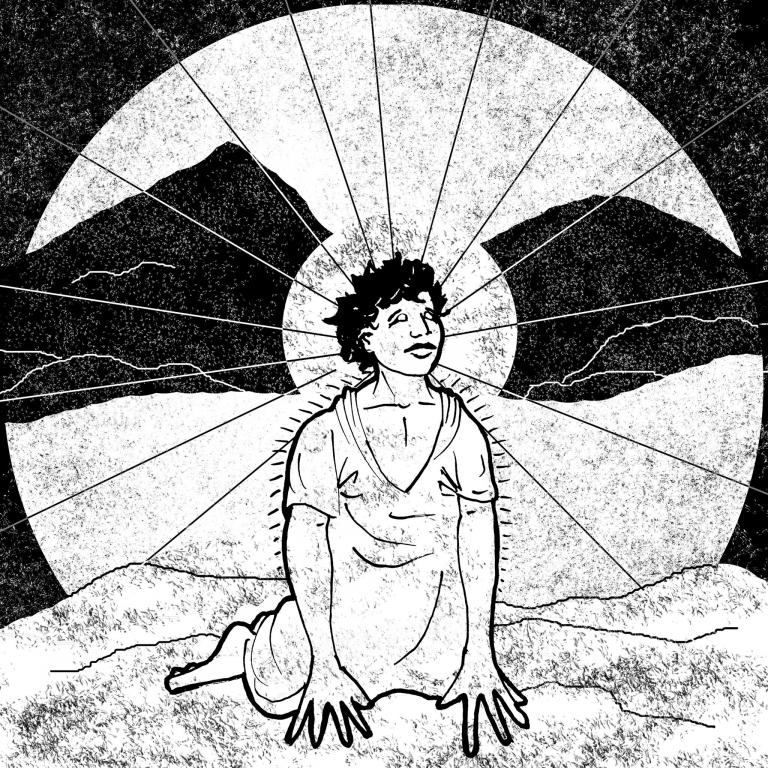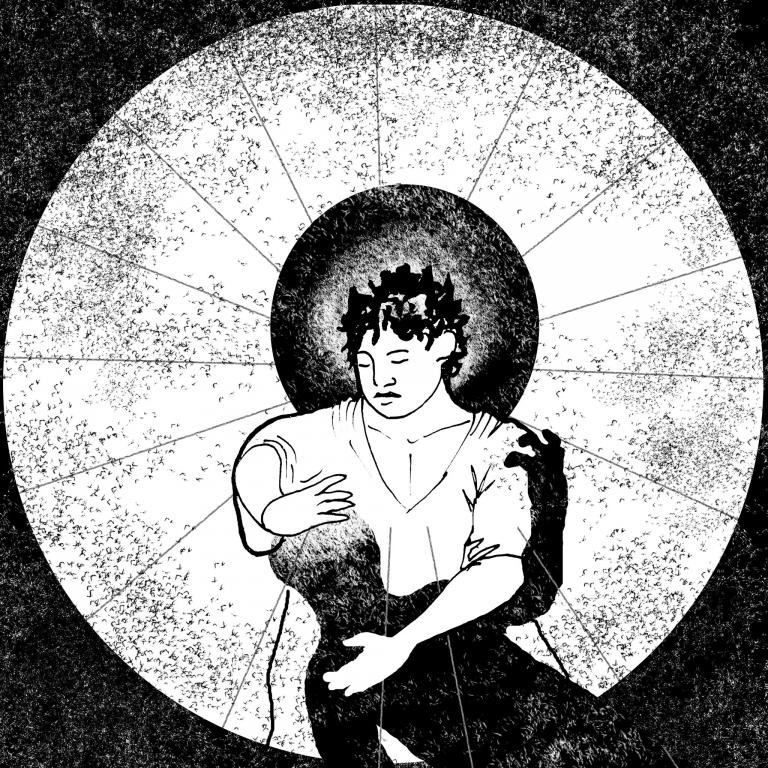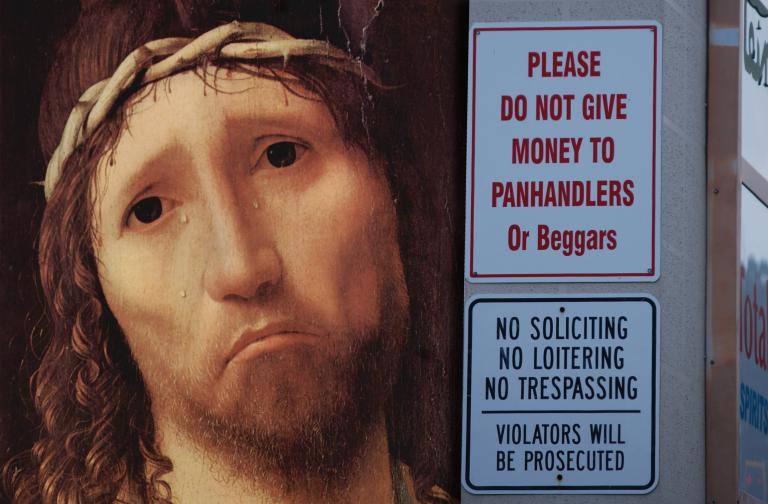
Jesus’ vision of the (un)Kingdom of God is beautiful. He shows us a new way of being human, where alienation can be destroyed. The distance separating us from each other and our God need not remain.
Jesus imagined a world where alienation had ended, where all people could be a part of God’s family. He saw a world where love reigned, where all good things were shared by all and there was even some left over. He saw a world where people could know and be known by God. A world filled with joy.
Let’s be honest. When have any of us ever really experienced this world that Jesus came to inaugurate? Rarely have I experienced this thing Jesus called the “kingdom of God.” Usually, things fall short. Alienation remains. Injustice persists. Even (or perhaps especially) among Christians.
If we compare the promises of God with the reality of most of humanity, it would seem that either God does not exist, or God has abandoned us.
Yet I keep hoping. I hope for the (un)kingdom to become enfleshed in my own life and actions, but also in real flesh-and-blood communities. And while there are glimpses of the (un)kingdom all around us, they are rare specimens.
Hope is a strange thing. Often, it is expressed as naive optimism—a sort of stubborn wishful thinking that usually only works out for people in movies. Hope is wanting something that we don’t have, and somehow believing we’ll get it. Hope is experienced by both the hero and the fool. And, it would seem, the only difference between the two is that the hero gets what he or she wants.
So, is Jesus a hero or a fool? Which are we? The vision Jesus offered of a divine kingdom is beautiful. If anything is worthy of hope, it is that vision. But to all observers, Jesus failed in his quest. And those of us who are transfixed by that vision have failed too. Those of us who put our faith in Jesus rarely, if ever, experience what he promised.
Yet we keep hoping. We are fools, longing for a world that exists, if at all, in fragments.
To continually long for something that is beyond your reach can destroy your soul. Eventually, unfulfilled hopes bring a sort of death. After a lifetime of disappointment, many become a broken, sad, resigned people. They accept the world as it is, not because they find it beautiful, but because they no longer expect anything else. They settle in the same way an old dying man might lay upon his sick bed awaiting death to come for him.
Others become delusional. They experience a death of reality. They can’t bear to live without hope, so they deceive themselves. I know a man who constantly tells himself and others of his successes. After a while, it became apparent that he was completely full of crap. I’ve met a lot of men and women like that—who constantly lie about themselves. It is tempting to disdain them, but holding to a false reality seems at least as valid as the sort of slow death that may come from honesty. There is a sad courage in accepting a painful truth. So too is there a sort of courage in believing in something even when the whole world disagrees with you.
By all appearances, we live in a world abandoned by God. I have enough faith to see flickers of the divine in rare moments. But I lack faith to see the inbreaking of the (un)kingdom of God. The world marches towards death. Some argue that the American Empire is in a state of perpetual war. Yet, at least statistically speaking, Christianity has never been stronger.
In light of this reality, some people simply walk away from faith—not in a bold way that converts to atheism do; rather, they simply give up hope. Others simply enter into a repeating cycle of positive self talk, rejuicing weekly listening to platitudinous sermons and loudly singing happy Jesus music. Perhaps their joyful piety is born of sincerity. But I believe that all worship devoid of lament is based upon falsehood. Such worship is a sacred distraction—what Marx called the “opiate of the masses.”
There is, I believe, a middle way.
Am I a fool for believing that the (un)kingdom of God will come in full? Am I delusional for seeing the movement of the Holy Spirit when I see two enemies become friends? When I feel love stirring in my soul towards someone I am tempted to reject, am I lying to myself? And am I lying to myself when I conclude that I’m becoming more like Jesus…whose divine presence I sometimes experience?
Perhaps. But, in the words of Jacques Ellul, “hope is the rejection of [the] real discrepancy between the eternal plan revealed in Jesus Christ and the concrete situation of the present…”
If it is delusional to hope in something that doesn’t exist, then I choose to be delusional. If it is foolish to believe in the (un)kingdom of God, then call me a fool. The middle way is willful delusion. Seeing the world through eyes that refuse to be shielded from pain and brokenness, but refusing to give up hope.
Willful delusion is the only path available who long for a better world. Like those sad lot who give themselves over to the world as-it-is, we need to be honest about the real brokenness we encounter in the world. But, like those delusional people who embrace lies in their attempts to cling to hope, we too need to be stubborn in our refusal to accept that the world as-it-is remains the final word.
Perhaps this is enough. As Cesare Pavese writes,
Basically, the secret of life is to act as though we possessed the thing we most painfully lack. In that lies the whole doctrine of Christianity. To convince ourselves that everything is created for good, that the brotherhood of man really exists—and if that is not true, what does it matter? The comfort of this vision lies in believing it, not in whether it is real. For if I believe it, and you, and he, and everyone, it will become real.
But I believe we must go a step further in our willful delusion. Instead of simply trying to “be the change” we want to see in the world, we must shake heaven itself with our cries of lament. Rather than living as orphans, we must cry out to our God. This is the subversive path—to live into the world with delusional hope as we cry out to our Creator to make good on his promises. As Jaques Ellul writes (in his excellent work, Hope in Time of Abandonment):
Hope comes alive only in the dreary silence of God, in our loneliness before a closed heaven, in our abandonment…God is silent, so it’s man who is going to speak…It is a demand. When God is silent, he has to be made to talk. When God turns away, he has to be made to turn back to us again. When God seems dead, he has to be made to exist. It can take the form of an anguished appeal, a complaint, a lamentation, or a prayer of repentance. It can also take the form of daring protest, of violence against God, of accusation…Hence, in a sense, it could be said that hope is blasphemous. It actually rejects the decision of God’s silence.
Our response in the midst of abandonment is to willfully hope when all evidence tells us it is foolish. We must become those people who refuse to accept the injustices and pain in this world. Instead, we must cry out and reject God’s silence as we live into the (un)kingdom.
* * *
Image from Jonathan Inkman.















